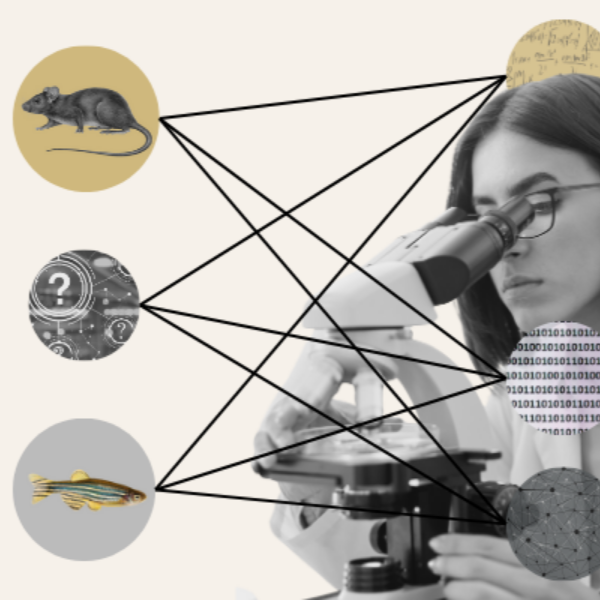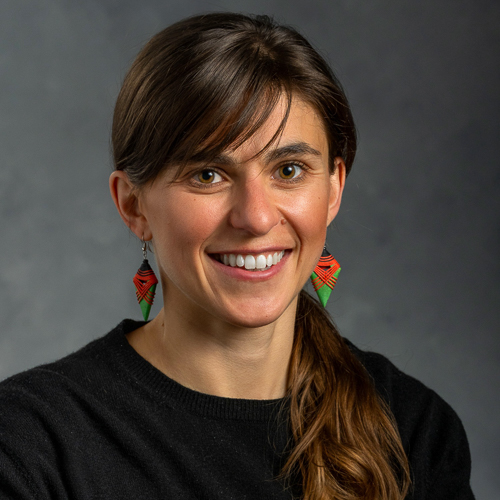Mariah Meek and collaborators obtain grant to develop fish species ID tool
Researchers from MSU, Texas A&M-Corpus Christi, and St. Anselm College received a $749,255 grant from the National Science Foundation's (NSF) newest and most unique structure, the Convergence Accelerator, to begin Phase 1 development of a user-friendly, fish species identification tool. The app will significantly reduce illegal, unregulated and unreported fishing. Next year, the team will be up for an additional two years and $5 million in funding.
Mariah Meek, lead investigator on the grant, said, "Our project combines the CRISPR-Cas13a Specific High-sensitivity Enzymatic Reporter unLOCKing system, or SHERLOCK, and artificial intelligence capabilities to develop low-cost, rapid field-deployable species identification tools. During Phase I of this project, we will develop SHERLOCK assays paired with an artificial intelligence smartphone app for species identification between three pairs: Carolina vs Scalloped Hammerhead, Atlantic salmon vs the Pacific salmonids, and bigeye vs yellowfin tuna."
In the past 30 years, sustainable harvest of global fish stocks has plummeted from 90 percent to 66 percent, according to the Food and Agricultural Organization of the United Nations. Regulation, monitoring and enforcement of sustainable harvest is difficult and hinges on the ability to correctly identify species that, on the surface, look extremely similar. Some species are almost impossible to distinguish based on their appearance, such as the two species of sharks, while at other times customs officials may only have a fin to go on.
Meek believes SHERLOCK will give fishers, fisheries managers, agency biologists, customs officials and seafood venders the power to become their own piscatorial gumshoes. By snapping a picture with their phone and wiping the fish in question with a swab, the tools will enable them to correctly identify which fish is which.
"This app will improve seafood traceability by enabling verification of species at each level of the supply chain, as well as improve monitoring of conservation status and enforcement of protective regulations," Mariah said. The app will be the latest genomics tool helping to improve humans' ability to conserve biodiversity under development in the Meek Lab.
Dave Portnoy, associate professor, and Chris Hollenbeck, assistant professor, both from Texas A&M University-Corpus Christi's Marine Genomics Lab, as well as Shannon O'Leary, assistant professor from St. Anselm College, are co-PIs on the project. Nihar Mahapatra, associate professor in MSU's Department of Electrical and Computer Engineering in the College of Engineering, is co-PI on the project and the lead for the computational and artificial intelligence aspects of the project. Nihar Mahapatra said, "Though more than 90% of seafood consumed in the U.S. is imported, less than 1 percent of those imports are inspected for compliance with existing regulations due to large volume, limited resources and time constraints."
"Our goal is that these tools will also help smaller, sustainable fisheries as it will provide a path for verifying the labeling and sustainability of their products and may allow them to sell their products at a higher price point and gain access to retailers with sustainability commitments," Mariah added.
Nadya Mamoozadeh, senior personnel on the grant and MSU postdoc, is a key researcher helping to design the SHERLOCK assays and to bring people into the project that can provide valuable perspectives on how the tools they design can be as user-friendly as possible.
"The SHERLOCK and AI technologies leveraged in this project provide a really great example of recent technological advances that can be applied in a new way to combat long-standing challenges to sustainable fisheries management," Nadya said. "Our main goal is for the tools we develop in this project to better equip diverse end users for protecting our oceans."
As the number of people in the world who eat fish increases while sustainable harvesting decreases, the speed with which the team's app goes live will be key to preventing the illegal harvest of millions of fish and helping the seafood-eating public avoid purchasing unregulated and overfished species.
Mariah said, "The simplicity of the genomic test kits and smartphone app integration will make information on fisheries practices and seafood supply chains accessible to the general public, equipping consumers to make informed decisions about seafood consumption. These public education efforts will be furthered by collaborations with prominent U.S. aquariums for educational outreach in dedicated exhibitions."



